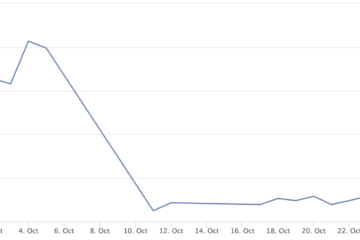Have you ever wondered what attributes and traits make a good artist manager? Why is it often considered a bad idea for artists to attempt self-management? To answer these questions, let’s begin by exploring the differences between artists and their managers.
Artists vs Managers
Artists and musicians, though not always the case, often possess a highly creative mindset. This creativity is usually fueled by emotional thinking, which can make them less inclined towards effective time management. Some artists may lack formal education, such as a college or high school degree, and consequently, they may not have the same level of business skills. This can result in a general lack of organizational skills and an inability to make sound business decisions. While there are exceptions to this pattern, it is a common scenario, with many artists finding the need to enlist the services of a manager to navigate the business side of their careers.
Managers typically come from a background of either artist management, marketing, or law. Having a degree or career in any of these fields is recommended because of the multiple business tasks that the manager will be in charge of. This can be helpful because the manager is the go-to person for everything relating to the artist’s career. This includes scheduling, contract deals, publicity, marketing, brand deals, publishing, interviews, you name it! The artist manager will have a role in making sure all of the business and day to day engagements run smoothly. The artist manager is sort of like the chief of staff. They are the head person that work alongside with everyone on the artist’s team and make sure everything goes according to plan. This can be highly stressful because there are technically no days off. If something goes wrong at any time, the manager is the one who has to step in a fix it. Artist Management is like running a business only your artist is your business.
Why Artists Need a Manager?
Artists need to be creative. That is the moneymaker! Artists are primarily creative individuals who need to focus on their craft. Managing the business side of their careers can be time-consuming and distracting. Managers help artists by taking care of these business-related tasks. Delegating responsibilities to managers allows artists to channel their energy and time into their creative processes. This can lead to higher-quality and more innovative work.
As stated previously, managers often have the necessary skills and expertise in areas such as contracts, marketing, scheduling, and negotiation. This complements the artists’ creative skills. Managers give what artists lack and vice versa. The relationship between artists and their managers is often symbiotic. Managers help artists build and maintain their careers, while artists provide the creative content that sustains the manager’s role. Effective management can lead to the long-term success and sustainability of an artist’s career. Managers can help plan for the future, secure lucrative deals, and ensure the artist’s work reaches a wider audience. Overall, the goal of an artist manager is to further their artist career. To be a successful manager, you need to be able to do whatever it takes in order to accomplish success for your artist. Managing the business aspects of an artistic career can be stressful and overwhelming. Managers can alleviate this burden, allowing artists to focus on their creative process and well-being. Beyond managers, artists often have agents, publicists, lawyers, and other professionals on their team to address various needs, but managers are the people in charge who work alongside these teams to make sure everything runs smoothly. New artists may not have as many industry contacts, if any at all, so artist managers can help them network and build relationships in the industry as well.
Overall
Artist and their managers form a critical partnership that allows for a balance between the creative and business aspects of their careers. This collaboration is essential for the sustained success and well-being of artists in the highly competitive and dynamic world of the music industry. A manager and their client have a relationship that is comparable to a romantic relationship or a marriage. When an artist signs with a manager, everything in their life becomes the managers business. This is because the manager has to do whatever it takes to further the artists career and well-being, so they must know about every little detail that goes on in the artist’s life. If an artist has a huge public breakup, drug problem, gets arrested, illness or any other situation that may cause a publicity nightmare, the manager has to be prepared in order to come up with a strategy that best helps protect the artist’s image. In order to keep this relationship, it is important the the manager is not a current friend or family member. This can cause a whole other array of issues, but we can speak about that in another blog! Many people do not know exactly how difficult it is to be an artist manager. It is an extremely important role in an artist’s life and is not the career for everyone. With that being said, with the many stressors and trials that come with being a manager, comes a larger reward.
Let me know your thoughts and questions in my Contact Me form!
Remember to fill out my Follow Me form to stay up to date on current news!
Follow my socials below!
Instagram | Facebook | Twitter


